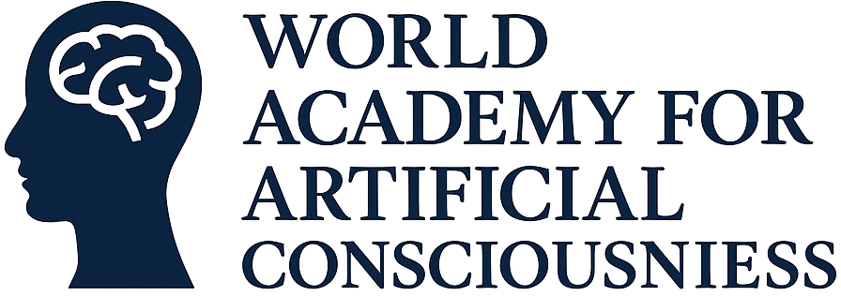_0.jpg)
We are pleased to announce that Gerwin Schalk, a leading scholar in brain–computer interfaces (BCI) and neuroengineering, has been elected an Academician of the World Academy for Artificial Consciousness (WAAC) in recognition of his sustained and pioneering contributions to brain–machine communication and to the assessment of disorders of consciousness (DoC).

Over many years, Professor Schalk has built an influential body of work centered on neural signaling pathways underlying communicative capacity and conscious accessibility. In IEEE Transactions on Biomedical Engineering (2004), he systematically introduced the BCI2000 platform, establishing an integrated, cross-signal and cross-paradigm architecture. In Journal of Neural Engineering (2007), he achieved the first high-accuracy decoding of two-dimensional movement trajectories from human electrocorticography (ECoG), expanding the clinical utility of cortical surface signals. In NeuroImage (2017), he proposed “instantaneous voltage” as a unifying perspective on power and phase, directly linking them to cortical excitability and enriching electrophysiological understanding of the arousal–attention system and communication-control pathways. Together with subsequent studies, these contributions have advanced stable, long-term communication for populations such as those with locked-in syndrome and propelled progress in consciousness evaluation in DoC contexts, laying a solid foundation for human–machine collaboration and clinical translation relevant to artificial consciousness.
- Global Collaboration and Academic Ecosystem
Academicians of the World Academy for Artificial Consciousness hail from institutions such as Harvard University, the Massachusetts Institute of Technology, the University of Cambridge, the University of California, the French Academy of Sciences, the University of Padua, the University of Queensland, Columbia University, and the University of Exeter. Honorary Academicians come from a wide range of countries and regions, including the United States, the United Kingdom, France, Germany, Italy, Sweden, Canada, Australia, Spain, and China. In addition, leading scientists from prominent research institutes and technology companies—such as Google, the Allen Institute for Brain Science, and ZEEKR—also participate.
- About WAAC

The World Academy for Artificial Consciousness (https://www.waac.ac/) is a global academic institution established in Paris in 2025. Its mission is to advance frontier research and international collaboration in artificial consciousness through the integration of science, technology, and philosophy. The Academy publishes open research, policy recommendations, evaluation standards, and more. The current President is Academician Yucong Duan, and the Secretary-General is Dr. Yingbo Li. The Honorary Academician List: On May 3, 2025, WAAC released its first batch of Top 100 Honorary Academicians, recognizing scholars who have made foundational or leading contributions to the theory of artificial consciousness.
